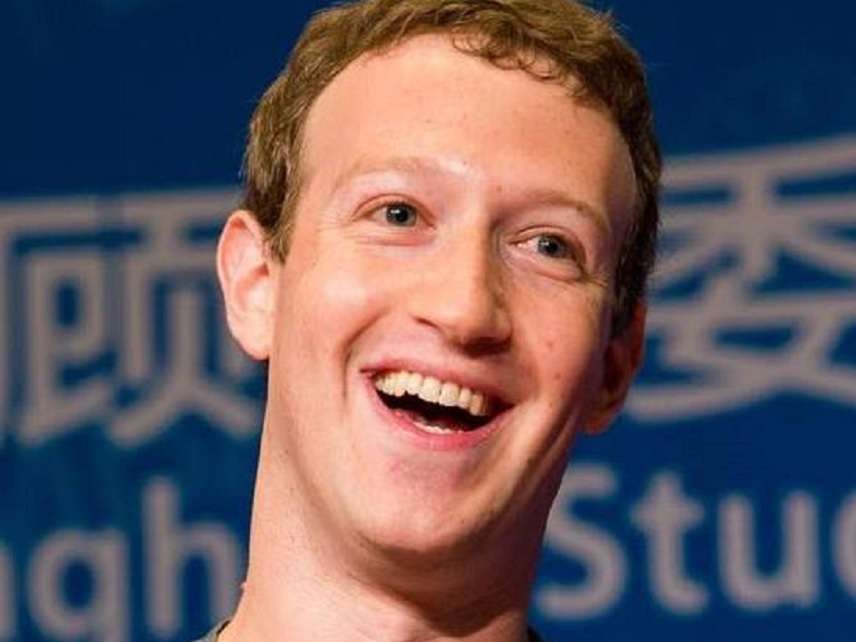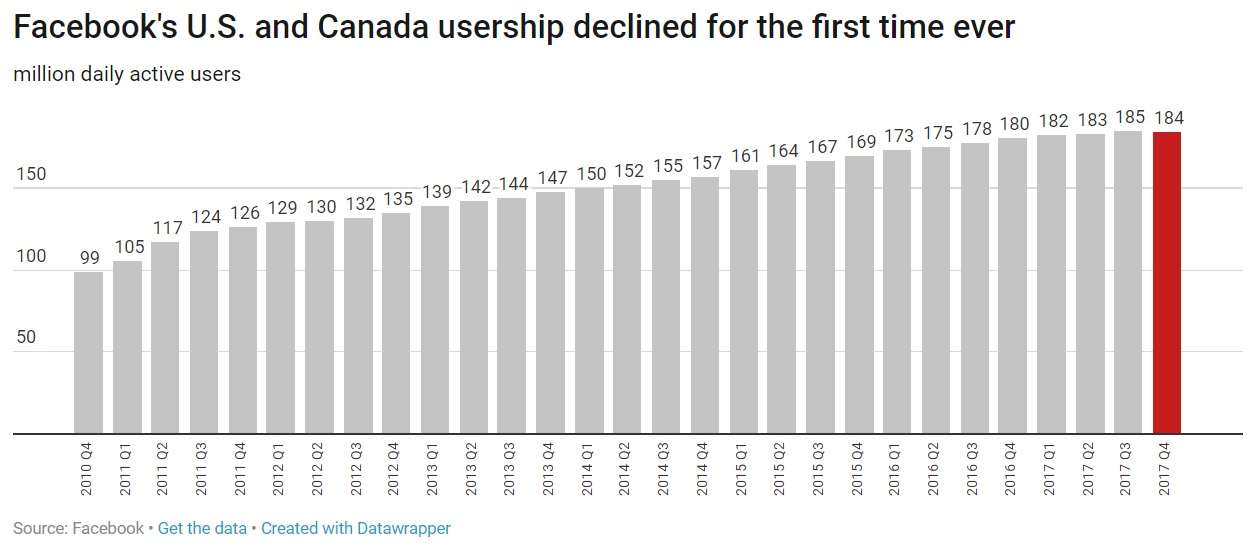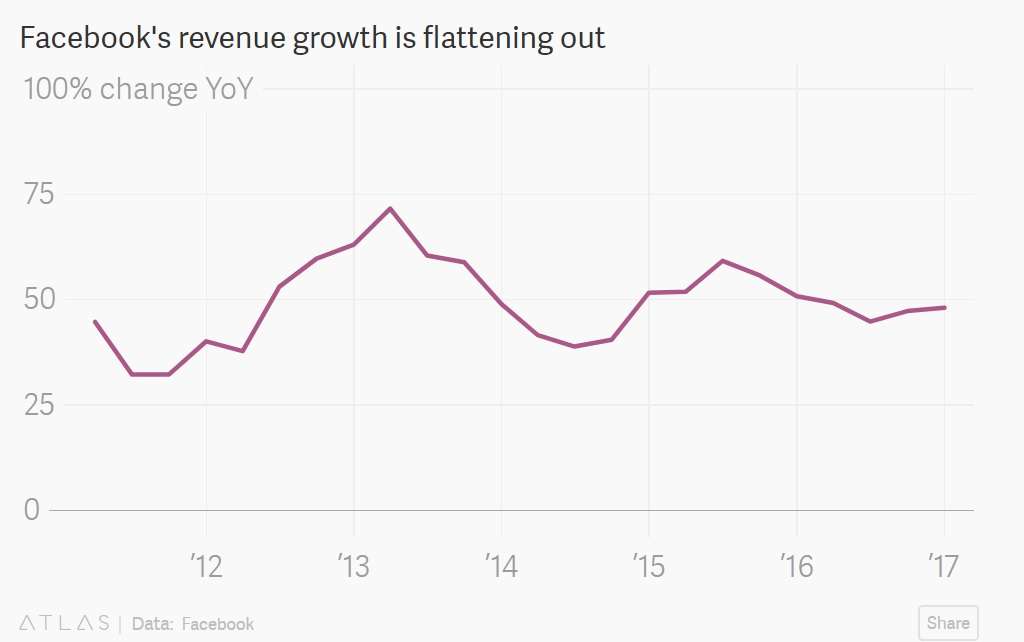Is Facebook Doomed? What To Expect from Mark Zuckerberg's Senate Testimony
His company's revenue and user growth are flattening; his image is in the toilet. Expect an embrace of hard or soft regulation from the social media king.

Today at 2 p.m. ET, Facebook founder and CEO Mark Zuckerberg testifies before the Senate Judiciary and Senate Commerce, Science, and Transportation committees on the social media platform's use and protection of user data (watch live at C-SPAN). Tomorrow, he'll sit down with the House Committee on Energy and Commerce.
What will he be asked and how will he answer? Republicans and Democrats are lining up to use Zuckerberg as a social-media punching bag. Liberal Sen. Dick Blumenthal (D–Conn.), whose bluster in the past has included lying about serving in Vietnam, has said "it's really kind of a high noon" for Zuckerberg and warned the young billionaire to come prepared with a better answer than, "'I made a mistake.' He didn't just spill milk on the breakfast table. There is a more fundamental issue related to Facebook's business model—they sell your information without your consent. That's what has to change."
From the right, Zuckerberg can expect to be grilled over questions about tamping down conservative news and opinion at Facebook. Recall it was only two years ago that Zuck met with prominent media conservatives to assure them that not only was Facebook's trending news system not biased against right-wingers but that Donald Trump and Fox News were big fish in the platform's pond. Sen. Ted Cruz (R–Texas), who was the first Republican presidential candidate to contract with Cambridge Analytica, the data-scraping service at the center of the current controversy, has said he's "very concerned" about political bias at Facebook. Sen. John Kennedy (R–La.) has opined that, "our promised digital utopia turned out not to be all the land of milk and honey."
The political dynamic at today's hearing should actually be excruciatingly fun to watch. Historically, Congress has made a fool of itself when weighing in on technology and new media ("a series of tubes," "Buffcoat and Beaver," etc.). But its ignorance also comes with a heavy dose of power. Zuckerberg is a liberal and presumed to share more with the very Democrats who will be grilling him over how his company cost Hillary Clinton the 2016 election (which it didn't, but dreams die hard). Russian trolls, fake news, fake ads—that's what Dems will be talking about.
Republicans will be threading a different needle. To satisfy conservatives, they need to attack Zuckerberg as a millennial snowflake who is running the greatest con around. In the representative words of National Review's Rich Lowry (channeling a very old man), Zuck "pretends to have stumbled out of the lyrics of John Lennon's song 'Imagine.' To listen to him, Facebook is all about connectivity and openness—he just happens to have made roughly $63 billion as the T-shirt-wearing champion of 'the global community,' whatever that means." Yet if Republicans suggest that Facebook somehow "let" or helped Trump win in an underhanded way, they will be accused of undermining their own party's fearless leader. Cruz, one of the most camera-hogging, tendentious interrogators to hit the Senate in decades, is in a particularly tight squeeze, since he was the original client of Cambridge Analytica and yet failed to make much good use of whatever data it stole or bought (depending on who's talking) from Facebook.
Expect both Dems and Reps to puff up their chests and demand restitution in the form of favors of going forward. That will include threats to sic the Federal Trade Commission (FTC) after Facebook. There's a 2011 consent decree in which Facebook admitted it deceived users into thinking some information was private when in fact it was being sold to app makers and other third parties. Expect Dems to push for more protocols on who is allowed to advertise and under what circumstances, especially when it comes to political speech. Republicans will push more on the idea that their views are grossly and systematically under-represented on the site and they therefore want more visibility on the site.
For Zuckerberg, it will be easy to give both sides what they want. What he wants is not fully clear, but he has already said he's open for federal regulation of social media: "The question is more 'What is the right regulation?' rather than 'Yes or no, should we be regulated?'" In North America, the platform's most-lucrative market, Facebook has recently lost daily, active users for the first time in its history—and that was before the latest flap.

If history is any indication, what Zuckerberg will push for is a form of regulation—either explicit or implicit—that will allow Facebook to maintain its pole position in the social-media landscape. As the socialist historian Gabriel Kolko discovered, in the late 19th and early 20th centuries this took the form of railroad owners actually calling for regulation to bolster falling profits and declining market share. "In their desire to establish stability and control over rates and competition," wrote Kolko, "the railroads often resorted to voluntary, cooperative efforts….When these efforts failed, as they inevitably did, the railroad men turned to political solutions to [stabilize] their increasingly chaotic industry. They advocated measures designed to bring under control those railroads within their own ranks that refused to conform to voluntary compacts….[F]rom the beginning of the 20th century until at least the initiation of World War I, the railroad industry resorted primarily to political alternatives and gave up the abortive efforts to put its own house in order by relying on voluntary cooperation." The regulations took the form of uniform, guaranteed rates, routes assigned and enforced by the government, and more that ended up costing customers more than they paid during the dread era of laissez-faire.
Of course, the barriers to entry in industries such as railroads are infinitely higher than in social media (the massively popular messaging and VOIP service WhatsApp was started in 2009 by a handful of people and was sold to Facebook in 2014 for almost $20 billion). In written testimony for Wednesday's hearing in front of the House Committee on Energy and Commerce, Zuckerberg runs through actions Facebook has already taken to address the Cambridge Analytica and Russian interference issues. "It's not enough to just connect people, we have to make sure those connections are positive. It's not enough to just give people a voice, we have to make sure people aren't using it to hurt people or spread misinformation," he writes. "It's not enough to give people control of their information, we have to make sure developers they've given it to are protecting it too." Actions that have already been implemented include automatically disabling unused apps' access to user data, increased opt-ins from friends contacted by a user's apps that request access to personal information, higher levels of identity verification for users and advertisers, and "cooperating with the U.S. and foreign governments on election integrity."
Given his earlier statements about welcoming regulation and given bottom-line concerns about Facebook's growth, look for Zuckerberg to sign on to broad recommendations about how safeguarding people's privacy is absolutely essential to any and all new and existing social-media platforms. Exactly what those rules might look like, who will ultimately enforce them (governments, civil courts, or businesses), and whether they will work in any way other than to degrade the ability of new competitors to flourish and grow is anybody's guess. What isn't in question is that in the sped-up life cycle of internet businesses, Facebook is entering its middle age despite only being 14 years old. Its revenue growth is enviable by virtually any measure but it is flattening out too, which is surely sending chills down the spine of managers who in recent years have pushed unsuccessful strategies such as Facebook Live, a "pivot to video," and the promotion and sponsorship of original content.

For much of the past three years, the conversation about the future of the internet has centered on issues such as "Net Neutrality" and reining in internet-service providers (ISPs) who were assumed to be figuring out ways to squeeze more money out of customers and content providers in an era of cord-cutting and declining ratings for cable TV. But a bigger and more meaningful concern actually involves platforms such as Facebook, Twitter, and Google (including YouTube) that have massive audiences and opaque-at-best systems for internal governance. Whatever Wild West days the World Wide Web once enjoyed are mostly over, and today's internet more closely resembles a suburban shopping mall rather than a rough-and-tumble part of town. (Kudos to the folks at Blockstack, Ethereum, and elsewhere that are working to decentralize the internet.) Facebook's "walled garden" has succeeded in many ways to make online space safe and accessible for over 2 billion users, a sort of Club Penguin for adults. The challenge in front of all of us is to make sure that in saving Facebook's business model and vision, Mark Zuckerberg and Congress don't put the screws to an online world that has barely been mapped.


Show Comments (134)